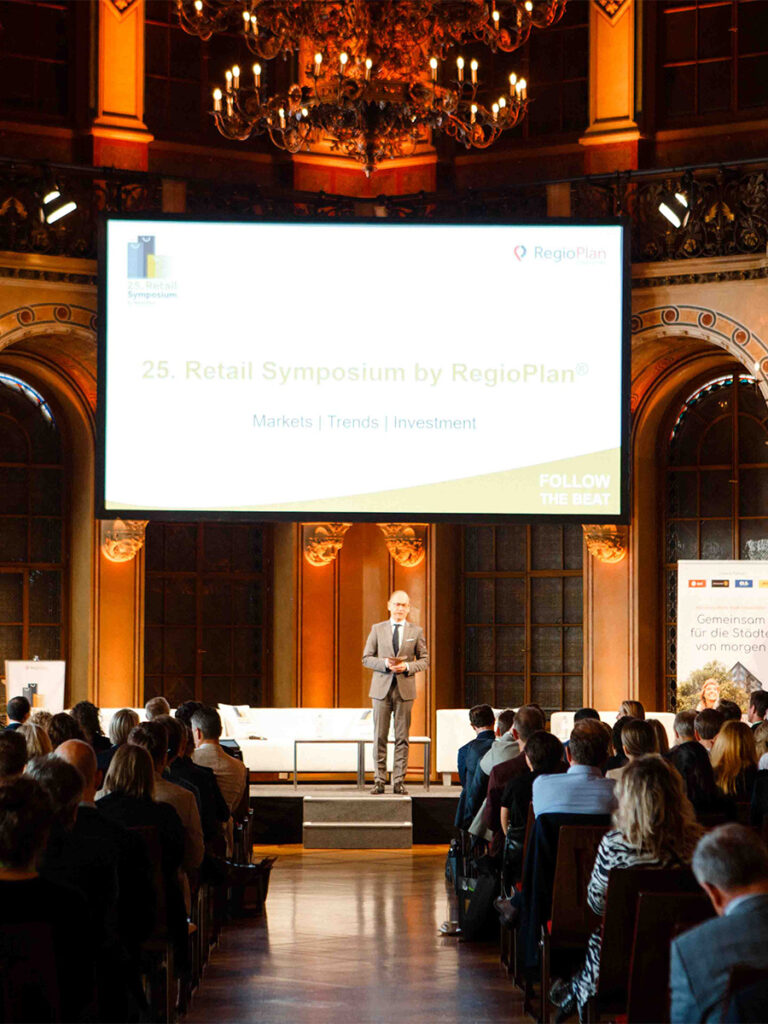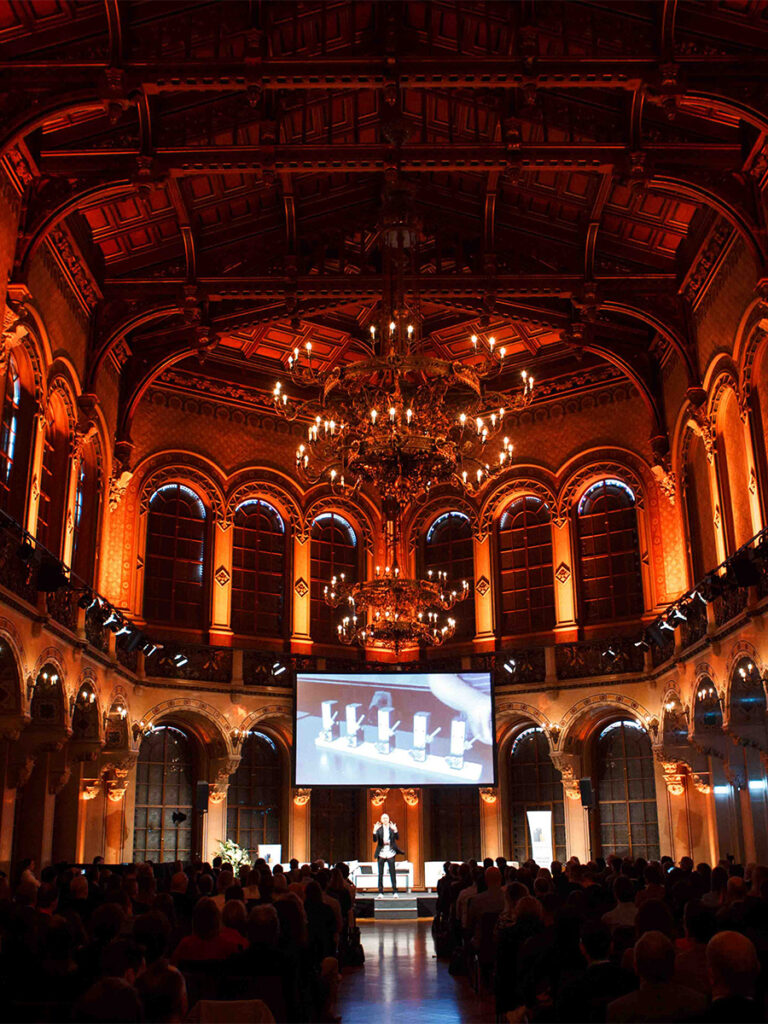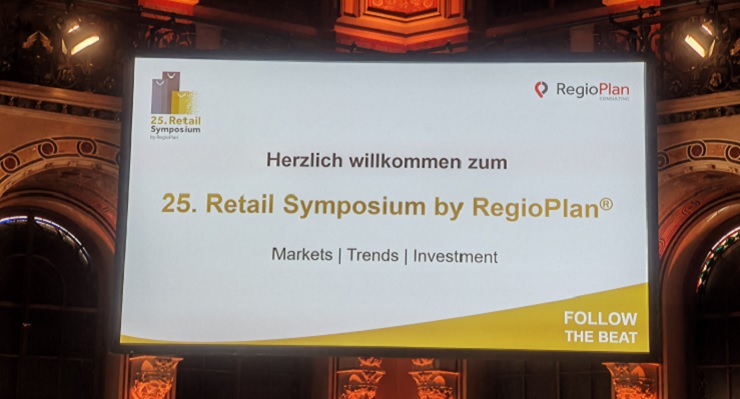Markets
The first part of the event focused on online and offline markets, while zooming in on sustainability, and the relationship between retailers and landlords. Covering consumer behavior influenced by the current climate crisis, Alexandra Mossakowski of INTEGRAL Markt- und Meinungsforschungs GmbH, shared a few key points that provide an insightful overview of recent trends. Addressing a common misconception about the different perceptions of sustainability based on a generational gap, she reveals that the difference in consumers´ perception towards sustainability has nothing to do with age and generation but rather depends on values and environment. Therefore, it is not true that Gen Zs are, in general, more sustainable than baby boomers.
In a discussion between retailers and landlords it became clear that negotiations about lease contracts can take up to a year. The shops are getting smaller overall, and there are hardly any two-story shops. The topic of e-commerce and the expectations of stationary retail were covered in a dialogue between Christoph Andexlinger, CEO of SES Spar European Shopping Centers, and Alpay Güner, CEO of MediaMarkt Österreich GmbH. Addressing the retailer-landlord relationship and its importance, Andexlinger states: “During the pandemic, landlords and tenants have learned to talk to each other properly again and to work together and to implement customer wishes together.”
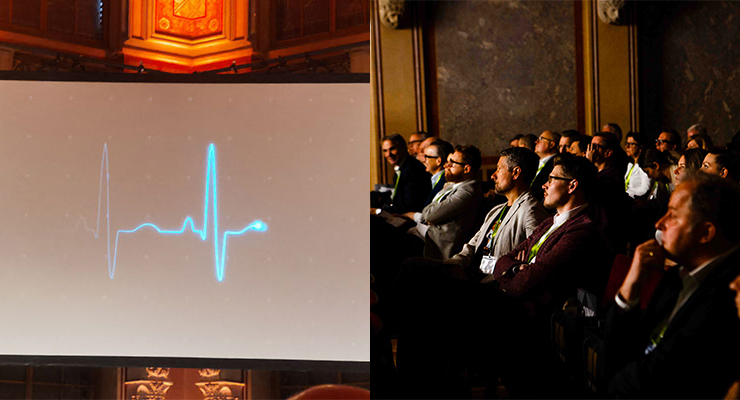
Trends
Digitalization and new potential avenues for the retail industry are receiving more attention than ever. Under the name “Voices of the future” a discussion compared the views and opinions of the Baby Boomer and Gen Z generations regarding Web 3 and the Metaverse. The guest speakers of Gen Z are relatively skeptical about Web 3, and some have little experience with the topic of Metaverse and prefer stationary retail. The skepticism revolving around the Metaverse and Web 3, however, also extends to the boomer generation, as Klaus Slamanig, B2C Commercial Director for Nespresso Austria GmbH, and Jasmin Soravia, Managing Director, Kollitsch & Soravia Immobilien GmbH, both have their doubts about the practicability of this evolving technology. According to Jasmin Soravia, the Metaverse is an interesting experience, but she does not see much reason to buy clothing, etc., for a virtual avatar.
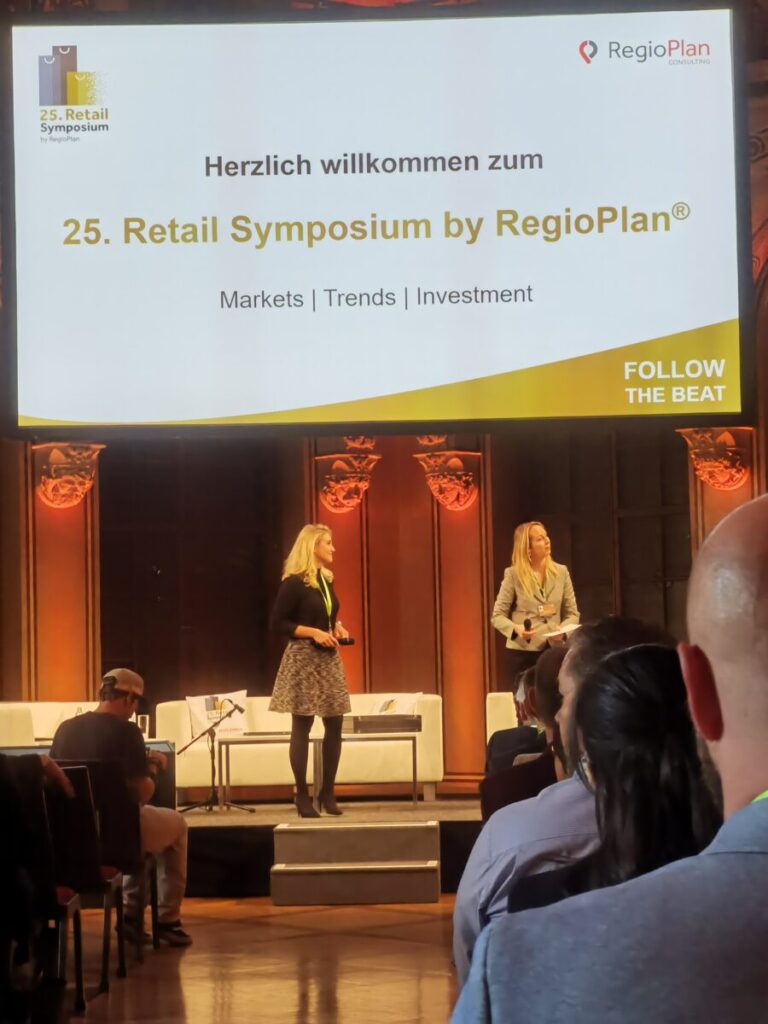
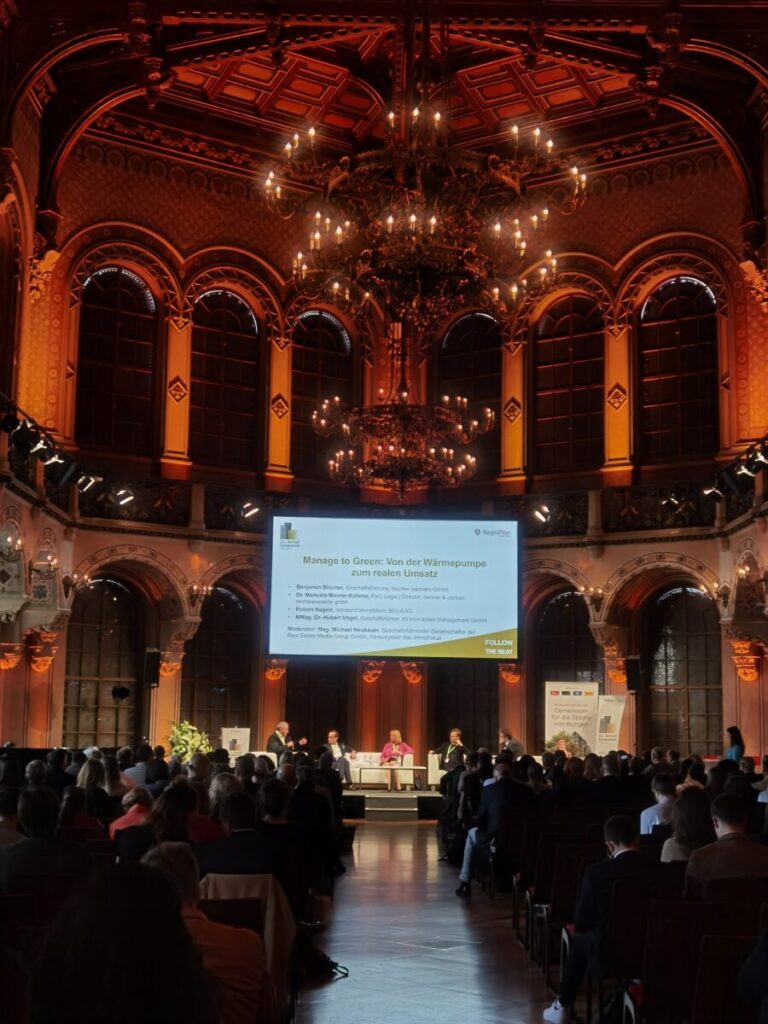
Another hot topic was the question of demand and supply, presented under “To have or to be?” from the retailers´ perspective. The approach, which was generally agreed upon is to be in order to have, as both trends go hand in hand. “We must open where the consumer is, and we have to be found directly. The choice of location is becoming more important than ever because the customer will not make any effort to come to us. Also, customers must find what they are looking for immediately”, says Gabriel Käfer of TEDi Betriebs GmbH. On a similar note, Boyko Tchakarov of Action Retail Austria GmbH added: “We are not trendsetters. We are trend followers. Therefore, we need a structure that allows us to implement crucial trends directly, and very quickly.”
Overall, customers want to own the products. Sharing is fundamentally conceivable yet very much product dependent.
Investments
The third part of the event focused on the current retail market conditions and the future of investments in the retail sector, and retail spaces. The question of whether the investments in retail will stop or dance on this year was answered with very clear statements. One key message is that investor interest in retail parks is unbroken. Paul Douay, Director of Operations Austria & Germany at Unibail-Rodamco-Westfield, thinks that “[r]etail is the asset class that has the most potential for development regarding ESG: the space is there, the connectivity is there, savings are easily possible. This is a big advantage compared to office and residential.” Erste Group also confirms this, as they have invested around 5 billion Euros in the retail sector so far, according to Guenther Artner, head of Group Commercial Real Estate at Erste Group Bank AG.
Another presentation followed by Steffen Eric Friedlein of ECE marketplaces GmbH on “[r]epurposing and increasing the attractiveness of retail space.” He refers to the motto of this year´s symposium, “Follow the Beat!”, as he explains that it will be alarming if real estate does not change in the same rhythm as society. After all, consumers need to find everything in a shopping center that they will not find online. He also reveals that many of ECE´s ideas in the field of F&B originate from China, since it is the ideal test market and source of innovative ideas. In the areas of Entertainment, Sport&Health, and Kids, China is a valuable source of new ideas for a good mix of sustainable design, which then adds to the shopping experience. He says, “The goal is to create dynamic and resistant systems, which will self-develop, and can adapt themselves to a changing environment.”
The final discussion, a one-on-one between Silvio Kirchmair, CEO of umdasch Store Makers, and Lisa-Maria Neuhofer, Marketing Director of DECATHLON Austria GmbH, offered some insight into the future obstacles of the industry in Europe and around the world, as it contextualized — with the help of some research data — the different challenges of population growth, immigration, use of available space, and so on. As a company that is very much affected by these global challenges, DECATHLON Marketing Director Lisa-Maria Neuhofer shared the company´s approach of automating stores, and its approach to digitalization and efficient workforce allocation.
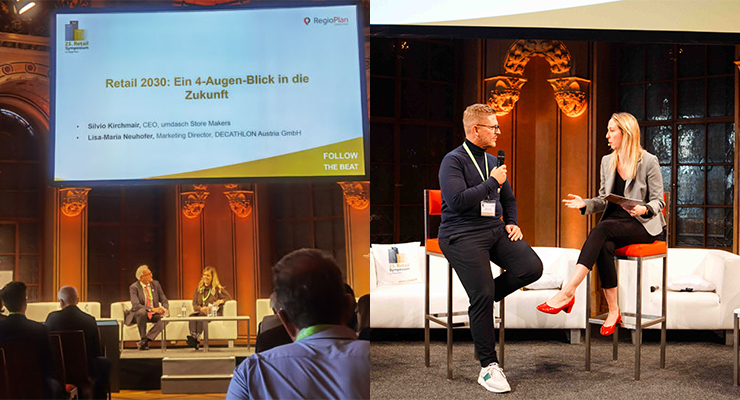
ACROSS sees the 25th Retail Symposium succeed at reminding everyone that digitalization is only legitimate where it really makes sense and not at any price, as well as what makes the difference to online retail is creating (market-) places for people of all ages and their needs to make their lives easier and more enjoyable while remaining authentic. The 25th Retail Symposium showed that the retail real estate industry is by no means in crisis mode but is working specifically on future topics: It is looking for new leasing models, is adapting to consumers with new needs, is innovative in the leisure and F&B sector, is looking for opportunities in the Internet 3.0 and tears down the boundaries between the asset classes. We observe a lot of trial and error, no one can present the patent solution, but we certainly see a lot of movement.
